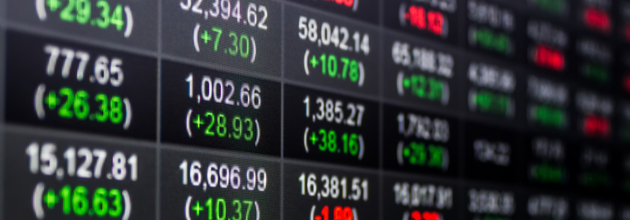One doesn't have to look far to the permanent suspension of President Trump on Twitter (NYSE:
TWTR), whose stock is
up 30% since the ban in January, as well as Parler's removal from the Apple (
AAPL) and Google (
GOOG) app stores and web hosting by Amazon (
AMZN). The corporate world has also brought in activists to their success, like Colin Kaepernick, who has been a prominent endorser for Nike (NYSE:
NKE) - the stock of the sneaker giant is
up 175% since the partnership first began in late 2018. Kaepernick has also gone on to work with global brands like Netflix (NASDAQ:
NFLX), Beats by Dre, Medium, Electronic Arts (NASDAQ:
EA), Audible and Ben & Jerry's (NYSE:
UL).
Down to Georgia... The state made changes to its voting laws this week, including new ID requirements for absentee voters, shortened absentee voting, guaranteed (but limited) drop boxes, expanded early voting and bans on handouts for people waiting in line to vote. GOP lawmakers said the bill was necessary to restore election confidence, though Democrats feel the measure will restrict voting rights, and some have even called it "Jim Crow 2.0." Soon after the decision, the MLB announced it would no longer hold the 2021 All-Star Game in Atlanta, and other corporations were quick to jump on board. Dozens of executives have come out to blast the new law, including leaders at Apple, American Express (NYSE:
AXP), Coca-Cola (NYSE:
KO), Delta (NYSE:
DAL), Merck (NYSE:
MRK) and Microsoft (NASDAQ:
MSFT).
Thought bubble: While companies have long sought to influence policies that directly impact their business, recent trends suggest CEOs are now injecting themselves into political debates or activism that could indirectly affect their bottom line. In an age of cancel culture, and where ideas are carried on social media within minutes, they may have to, though others warn of potential risks and consequences of picking sides. On that note, JPMorgan (NYSE:
JPM) CEO Jamie Dimon will release his annual shareholder letter today, which is expected to outline ideas for tax and social policies, a day after Amazon (NASDAQ:
AMZN) CEO Jeff Bezos came out in
support of President Biden's corporate tax hike and infrastructure plan. (
800 comments)



| Sponsored By VantagePoint  | |
| Financials Fallout from the Archegos affair keeps making headlines as Credit Suisse (NYSE:CS) logged a $4.7B hit following the meltdown of the investment firm. Credit Suisse's investment banking and risk chiefs will also get the boot, along with a number of business heads. The Swiss bank further scrapped proposals for executive bonuses for the year and slashed its dividend to a proposed 0.10 francs per share (from a payout of 0.2926 francs).
Recap: In late March, Archegos defaulted on margin calls from several global investment banks, including Credit Suisse, Nomura (NMR), Morgan Stanley (MS) and Goldman Sachs (GS). The fund had large, concentrated positions in ViacomCBS (VIAC), Baidu (BIDU) and other companies, but its use of total return swaps helped hide its high exposure from the banks. The derivative contracts exposed the firm to severe losses when the trades went sour, with fund manager Bill Hwang reportedly losing $8B in just ten days.
Last week, Credit Suisse was a forced to dump a significant amount of stock to sever its ties with Hwang's firm, and it now expects a first quarter pretax loss of around 900M Swiss francs ($960M). Meanwhile, another round of block trades saw Credit Suisse dump Archegos-linked stocks like ViacomCBS and Vipshop (VIPS), marking the second crisis to hit the bank in recent weeks. Earlier in March, Credit Suisse froze $10B in investment funds connected to now-insolvent Greensill Capital after marketing funds that financed the company's operations.
Outlook: The biggest source of banks' trading revenue was once client commissions, but those have narrowed over the last decade, leading their prime brokerage businesses to grow. That's where lenders provide financing for clients like hedge funds, as well as pooling trading and risk exposures to help drive profitability across their trading desks. However, banks have been struggling to handle a flood of deposits, while trying to not increase their capital requirements, which can partly explain the appeal of total return swaps involving Archegos. Balance sheet exposures must be carefully managed by institutions, and the ability to finance clients via prime brokerage does have its limits. (86 comments)    | |
| Tech Once one of the top smartphone makers in the U.S., LG Electronics exited the mobile business after talks with potential buyers came to an end. The South Korean company was early to market with a number of cell phone innovations (ultra-wide angle cameras and powerful stereo speakers), and at its peak in 2013, it was even the world's largest smartphone manufacturer behind Samsung (OTC:SSNLF) and Apple (NASDAQ:AAPL). Those two will likely gobble up its market share, which stands at 10% in North America.
What happened? Its flagship models were hurt by both software and hardware casualties, while slower software updates saw the brand steadily slip out of favor. Analysts have also blasted the company for lack of expertise in marketing compared to Chinese rivals. While LG was the first to adopt Google's (GOOG, GOOGL) Android OS, its smartphone division has recorded nearly six years of losses totaling about $4.5B and the time had come for an exit.
It's not the first time this has happened. Other well-known mobile brands like BlackBerry (BB), Nokia (NOK) and HTC (OTC:HTCKF) have also tumbled from lofty heights and have worked to transform their companies away from smartphones.
The future: "LG's strategic decision to exit the incredibly competitive mobile-phone sector will enable the company to focus resources in growth areas such as electric vehicle components, connected devices, smart homes, robotics, artificial intelligence and business-to-business solutions, as well as platforms and services," the company said in a statement. (38 comments)    | |
| Events The first major unionization drive at an Amazon (NASDAQ:AMZN) warehouse in the U.S. failed. The National Labor Relations Board has counted 1,738 "no" votes and 738 votes in support of unionization. There are over 500 contested ballots, but those would only be counted if the results were too close to call.
Bigger picture: Over the past few weeks, Amazon has pulled out all the stops to try and convince the workers at BHM1 that unionization would not be in their favor. It seems like the efforts paid off, which included aggressive advertising, mandatory anti-union meetings and sending workers multiple texts per day. Not only did the firm attract new workers to vote against the effort, but it also appears to have changed the mindset of workers who were planning to back the union, based on the early signs of support needed to trigger the vote in the first place.
Once the results have been formally certified by the National Labor Relations Board, there will likely be an appeal from The Retail, Wholesale and Department Store Union. The RWDSU is already saying that some of Amazon's tactics against the union were illegal. For example, a drop box that was placed in the parking lot of the facility could have intimidated workers into thinking that Amazon was monitoring the vote and was a direct effort to influence the ballot. Others have pointed to Amazon's push to have the county change the timing of a traffic light leaving the warehouse parking lot, which the company says was meant to alleviate congestion, though union organizers say it deprived them of a venue for canvassing workers.
What's next? Some labor experts think the union has a pretty strong case, with local regulators having the power to overturn the vote entirely and grant the union a victory. If that were to happen, the case could go to Washington, where Amazon could appeal on a national level to the NLRB. Don't expect an easy outcome. The entire process could take another few months. (84 comments)    | |
 U.S. Indices
Dow +2.0% to 33,801. S&P 500 +2.7% to 4,129. Nasdaq +3.1% to 13,900. Russell 2000 -0.4% to 2,245. CBOE Volatility Index -3.7% to 16.69.
S&P 500 Sectors
Consumer Staples +1.5%. Utilities +1.3%. Financials +1.9%. Telecom +3.2%. Healthcare +1.3%. Industrials +1.8%. Information Technology +4.7%. Materials +0.7%. Energy -4.1%. Consumer Discretionary +4.2%.
World Indices
London +2.7% to 6,916. France +1.1% to 6,169. Germany +0.8% to 15,234. Japan -0.3% to 29,768. China -1.% to 3,451. Hong Kong -0.9% to 28,678. India -0.9% to 49,591.
Commodities and Bonds
Crude Oil WTI -3.4% to $59.34/bbl. Gold +1.1% to $1,744.6/oz. Natural Gas -4.5% to 2.521. Ten-Year Treasury Yield +0.6% to 131.77.
Forex and Cryptos
EUR/USD +1.16%. USD/JPY -0.94%. GBP/USD -0.89%. Bitcoin +3.6%. Litecoin +15.6%. Ethereum +5.7%. Ripple +83.%.
Top Stock Gainers
BBQ Holdings (NASDAQ:BBQ) +75%. Rice Acquisition Corp (NYSE:RICE) +71%. Greenwich LifeSciences (NASDAQ:GLSI) +54%. ORBCOMM (NASDAQ:ORBC) +48%. Celcuity (NASDAQ:CELC) +46%.
Top Stock Losers
FibroGen (NASDAQ:FGEN) -48%. Franklin Wireless (NASDAQ:FKWL) -37%. Scholar Rock Holding (NASDAQ:SRRK) -36%. Molecular Templates (NASDAQ:MTEM) -34%. Liberty Tripadvisor Holdings (NASDAQ:LTRPB) -34%.
Where will the markets be headed next week? Current trends and ideas? Add your thoughts to the comments section. | |









EmoticonEmoticon